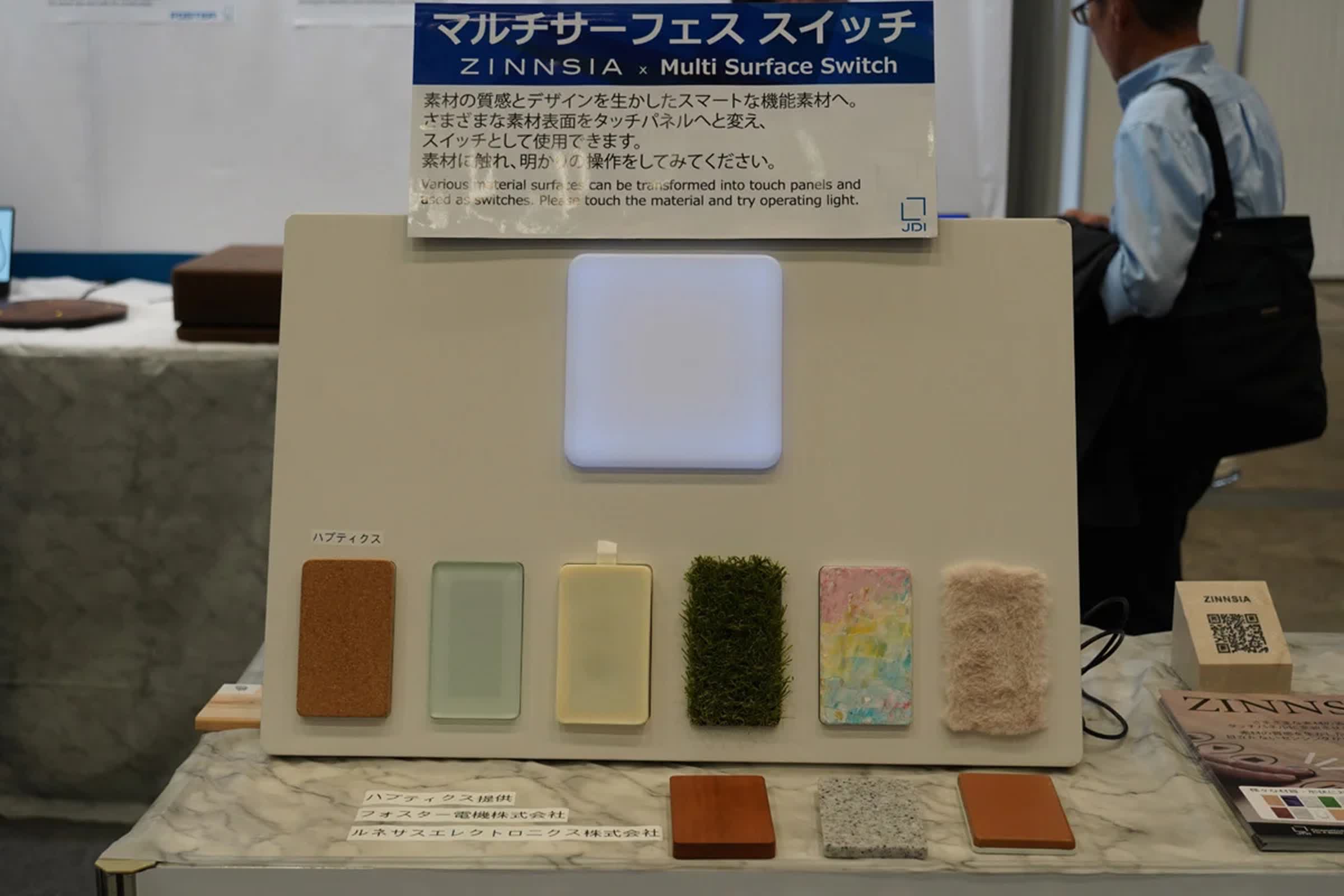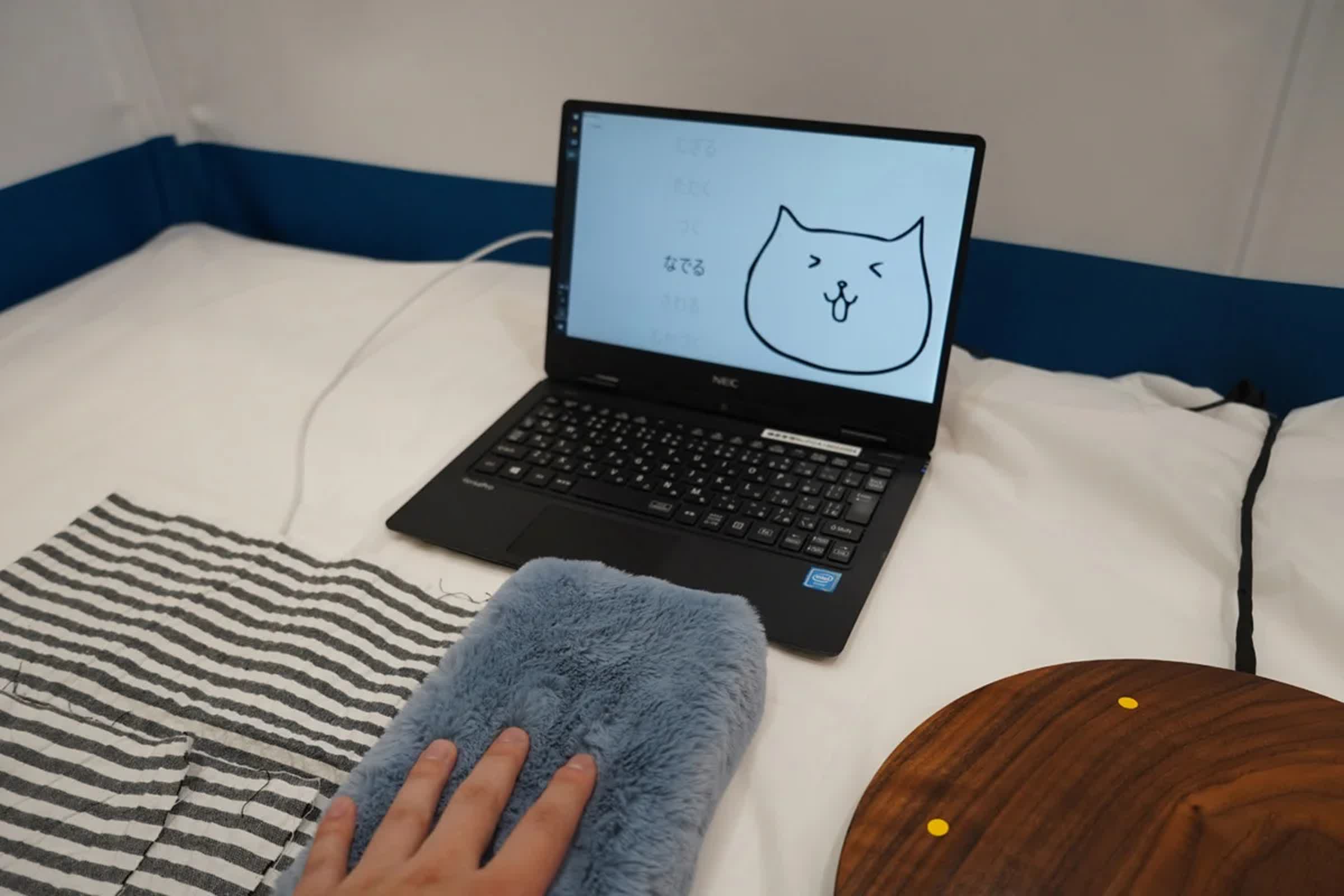Serving tech enthusiasts for over 25 years.
TechSpot means tech analysis and advice you can trust.
The big picture: Japan Display's Zinnsia technology marks a major leap toward more intuitive and ubiquitous human-computer interaction by transforming ordinary objects into smart, responsive surfaces. But the key questions remain: will it justify the cost, and can it endure the wear and tear of daily life?
Japan Display recently unveiled its Zinnsia technology, showcasing its potential to revolutionize how we interact with our surroundings. Zinnsia uses advanced capacitive sensing to transform a wide range of materials into touch-sensitive surfaces. These sensors can accurately detect touch through thick materials and even on irregularly shaped objects.
JDI demonstrated the versatility of Zinnsia with various interactive experiences. A stuffed animal, for instance, responded to touch, with corresponding reactions displayed on a nearby screen. Samples of wood, stone, plasterboard, and fabric were shown controlling lighting. A touch-sensitive houseplant even produced sounds when its leaves were touched.

Key features of Zinnsia include its high sensitivity, which allows for accurate touch detection even through thick materials, and its flexibility, enabling functionality on irregular shapes and various surfaces. Additionally, Zinnsia offers adjustable proximity settings, allowing for calibration that supports contactless operation.
Zinnsia opens up numerous possibilities for both commercial and consumer applications. In smart homes, everyday objects could be transformed into intuitive control interfaces for lighting, appliances, and entertainment systems.
In retail and public spaces, interactive displays and kiosks could be seamlessly integrated into various surfaces. Additionally, contactless controls could enhance hygiene in public areas and provide assistance to individuals with mobility challenges.

The technology also paves the way for new forms of interactive toys and exhibits in the entertainment sector, and touch interfaces could be implemented in industrial environments.
While Zinnsia shows great promise, several important factors must be considered as the technology moves toward commercialization. First, the cost of implementing Zinnsia in consumer products will play a crucial role in determining its widespread adoption.
Additionally, there is the question of how durable Zinnsia-enabled surfaces will be when exposed to repeated, unnatural interactions. Furthermore, Zinnsia should integrate seamlessly into existing products and systems, as consumers and businesses will expect it to function with their current setups.
Finally, as more surfaces become interactive, privacy and security concerns will emerge. Ensuring the protection of user data and maintaining privacy in an increasingly touch-sensitive world will be paramount.